Martha Roby: House and Senate take important step to support our military
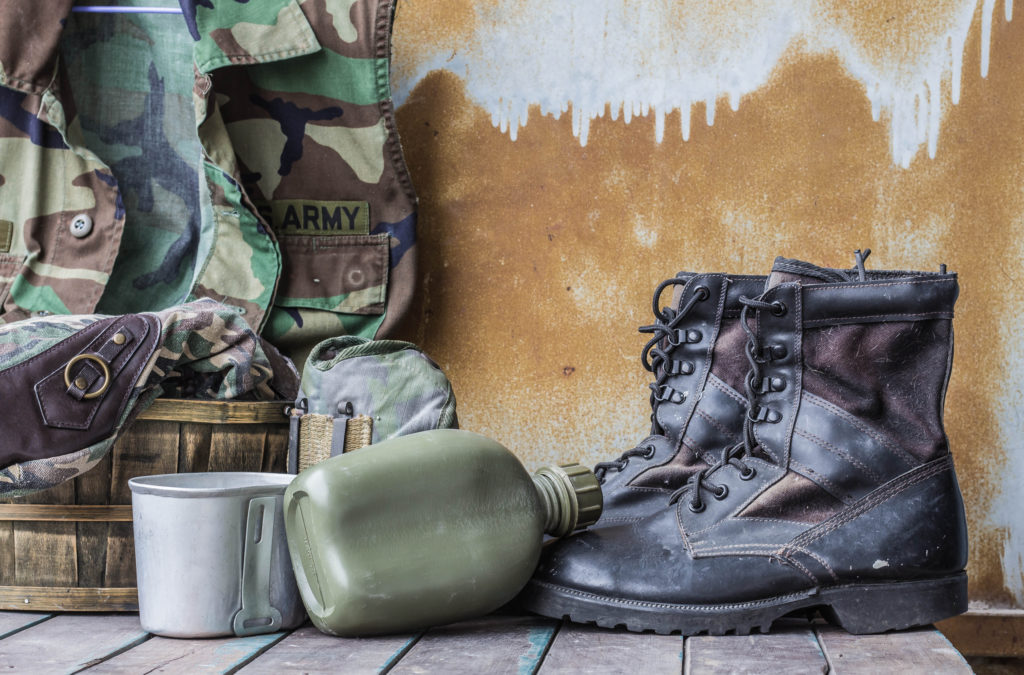
Thanksgiving is a special holiday because it offers us an opportunity to pause as a nation and thank God for all the ways He has blessed us. With all that is going on across our country and around the world, it can be easy to lose sight of just how much we have to be thankful for. As we gather with loved ones this Thanksgiving, I hope we can all take time count our many blessings. I’m thankful for the gift of family – for my husband Riley and our two wonderful children, Margaret and George; for our parents and all of our dear family and friends. I am thankful for the opportunity to serve my state and country in the United States Congress. It is an honor to be in a position to make a difference on behalf of those I represent and to fight to make this country great for all Americans. Thank you for allowing me to represent you. I am thankful for this great country and all the freedoms we enjoy as Americans. I’m abundantly grateful for the men and women of our Armed Forces who have put their lives on the line to defend these freedoms – especially those who are deployed and away from their families at this very moment. Just in time for the holiday season, Congress is saying “thank you” to all service personnel by authorizing the largest military pay raise in more than eight years. It’s part of the National Defense Authorization Act (NDAA), which has now passed the House and Senate and is expected to be signed into law by President Trump. As you may know, the NDAA is an annual bill authorizing various programs and activities throughout the military, ranging from weapons systems and training to military base construction and the payment of troops. After years of harmful budget cuts, this NDAA aims to rebuild our military by authorizing nearly $700 billion for the Department of Defense, increasing the size of the Army, Navy, Air Force, Army Guard and Reserve, Naval and Air Reserve, and Air Guard. The bill authorizes an additional $4.4 billion to strengthen Missile Defense and an additional $1.9 billion for military facility maintenance over the President’s budget. It also makes permanent the special survivor indemnity allowance (SSIA) payments to more than 60,000 surviving military spouses. The NDAA includes strong funding for Alabama-based military missions, including Army Aviation at Fort Rucker and military education and cyber warfare at Maxwell Air Force Base. One of Congress’ most fundamental duties enumerated in the Constitution is to “provide for the common defense” of the nation. As your Representative in Congress, I take my responsibility to look out for our troops very seriously. It’s no secret that the world has seen increased threats in recent years, from the rise of ISIS in the Middle East and Africa to North Korean hostility. It is imperative that we provide the military with the tools they need to deter these threats, and I am confident this NDAA does just that. It is my great honor to serve a district that is home to two of our nation’s finest military installations in Maxwell Air Force Base and Fort Rucker, thousands of active duty and reserve personnel, and nearly 16,000 military retirees. I have always been a strong and vocal proponent of properly funding the military, and I will continue to fight to ensure that the men and women who protect us have all the tools and resources they need to be safe and successful when we send them into harm’s way. ••• Martha Roby represents Alabama’s Second Congressional District. She lives in Montgomery, Alabama with her husband Riley and their two children.
Opelika fallen soldier Dusty Hiller featured in new National Geographic mini-series
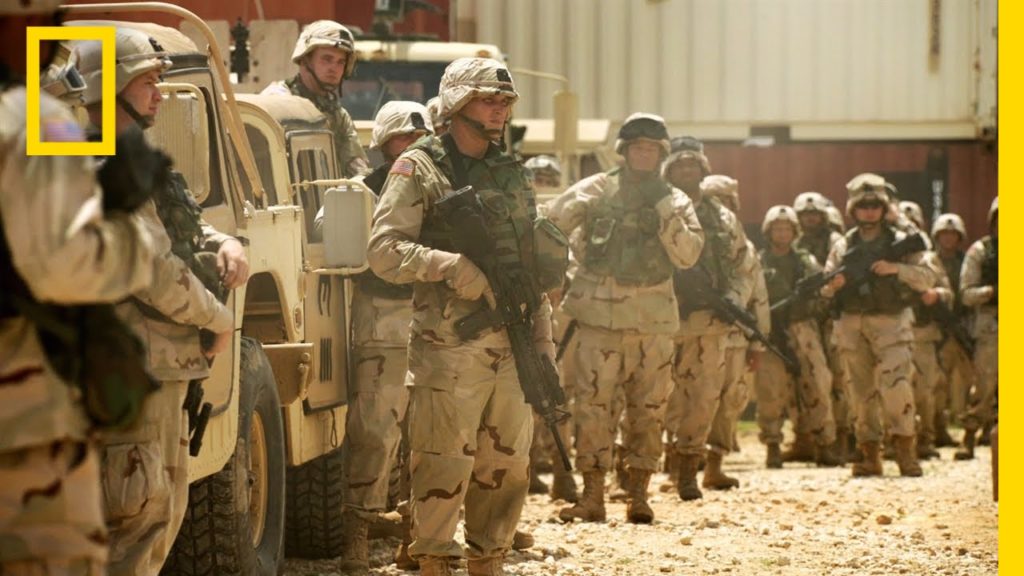
He died serving his country, now his story is being shared with America. Thirteen years ago, the First Cavalry Division deployed from Fort Hood, Texas. They were supposed to be on a peacekeeping mission, but four days later, an Iraqi militia ambushed one of their platoons. Eight Americans, including Army Spc. Stephen “Dusty” Hiller, 25, of Opelika, Ala. died that day in Sadr City, Baghdad, Iraq. Now, Dusty’s life is being remembered in a National Geographic television network mini-series called The Long Road Home. Based on the 2007 book by ABC News journalist Martha Raddatz, the mini-series chronicles the ferocious 8-hour long ambush on the First Cavalry Division, which later came to be known as ‘Black Sunday,’ and the soldiers’ heroic fight for survival. It also tells the story of the their families who waited back home for them. “Being in the military was Dusty’s dream,” Dusty’s mother, Beth Hiller said in a statement. “It was definitely hard reading the book in 2007 because it was like reliving 2004. I was mad, angry and sad all at one time.” Prior to losing his life, Dusty has just learned his wife Lesley was pregnant. Raddatz details what happened following the day after the attack, in detail as gut-wrenching as any battle story. “She opened the door and saw an army chaplain. Another officer in uniform was with him. There wasn’t a chance for either visitor to say a word. ” ‘No!’ Lesley yelled. She was frantic, panic-stricken. ‘You all got the wrong house!’ “She slammed the door. “The officers stayed outside and began calling her name softly. “After a moment she opened the door a crack. ” ‘Are you Mrs. Hiller?’ one of them asked. “She shook her head. ‘You have the wrong house,’ she insisted. ” ‘Is your name Lesley?’ ” ‘No,’ she said again. ‘You got the wrong house!’ Then she started to scream.” The officers followed Lesley Hiller into the house. She knew, of course, why they were there. She understood. It didn’t matter how carefully or humanely the military tried to conduct such visits; in the end the was the same. The series premiered last week, and seven more episodes will continue to air on Tuesday nights at 8 p.m. CT.
Kay Ivey: In Alabama, we have our veterans’ backs

Dedication. Honor. Commitment. Sacrifice. Those are the traits that come to mind when I think about our nation’s veterans. I saw these qualities lived out every day by my dad. Boadman Nettles Ivey, my father, served in WWII as part of a field artillery division. From him I learned to love my country, to offer myself to serve my fellow citizen and to stand up for what is right, even when doing so might be difficult. Though I have a profound and deep respect for my dad, he isn’t the only person to possess these qualities; they are shared by most everyone who has ever served in the United States Armed Forces. From the moment a man or woman puts on the uniform and pledges to “support and defend the Constitution of the United States against all enemies foreign and domestic,” he or she enters into an elite class of citizen-soldiers. Veterans, distinguished by their character, duty and service, make great contributions to our society not only on the battlefield, but in our communities. Though one may leave the active service, a veteran never truly stops serving. Once their military careers end, many veterans choose Alabama as their home. In fact, one in 10 Alabamians are veterans. Our state has benefited greatly from those who have been stationed at Fort Benning, Fort Rucker, Maxwell Air Force Base, and Redstone Arsenal, among others. Alabama is enriched because these highly-skilled veterans have chosen to continue their public service by pursuing career opportunities, in many cases, in local and state government. I am proud to have men and women who have worn the military uniform as part of my staff and cabinet, including Jeff Dunn and Brian Hastings, among others. Before becoming Commissioner of the Alabama Department of Corrections, Colonel Jeff Dunn had a distinguished career in the Air Force. Likewise, Colonel Brian Hastings, who serves as Director of the Alabama Emergency Management Agency, held significant Air Force commands. Throughout my career in public service, I have placed importance on supporting the work of the military in Alabama. From helping lead the Alabama Military Stability Commission, to having recently signed into law new legislation allowing veterans to more easily further their educations, supporting those who protect our nation has been at the forefront of my agenda. This month, I announced that veterans will no longer be required to pay entrance fees at any of our state parks. As long as I am governor, it will be the policy of our state to honor those who have protected our freedoms. Alabama has always been and continues to be a veteran-friendly state, but at the same time, veterans have been very good to Alabama. The leadership military men and women provide, and their tireless commitment to public service, have made Alabama a better place to live, own a home, raise a family and to achieve our dreams. Alabama is indeed indebted to countless men and women like Colonels Dunn and Hastings, who never stop serving others. As governor, it comforts me knowing that within my cabinet and staff are individuals who have operated at many levels of the military and who are extremely capable of helping me lead our state. Those who have served in the Armed Forces understand the phrase: “I’ve got your six,” meaning someone is watching your back and is standing ready to protect you at all costs. I am thankful that thousands upon thousands of Alabamians have stood strong, promising to protect and serve while on active duty and afterward. Now, as we celebrate Veterans Day, it is only fitting that we make it loud and clear to those same veterans – “Alabama’s got your six.” This Veterans Day, and every day, when you see a veteran thank him or her for their service. Share a smile, a hearty handshake or a warm hug. Remind them that you will never forget their service and, despite the changes our nation faces, in Alabama, we are still proud to stand for our flag, for our freedom, and in honor of those who sacrificed so much, so that freedom can, and still does, truly ring. ••• Kay Ivey is the 54th, and current, Governor of Alabama. A member of the Republican Party, Ivey served as the 38th Alabama State Treasurer from 2003 to 2011, and later became the 30th Lieutenant Governor of Alabama; she was the first Republican woman elected in this state, serving from January 2011 until April 2017. She assumed office as governor on April 10, 2017
Military career fulfilled childhood dreams for Phenix City’s Denise Richardson
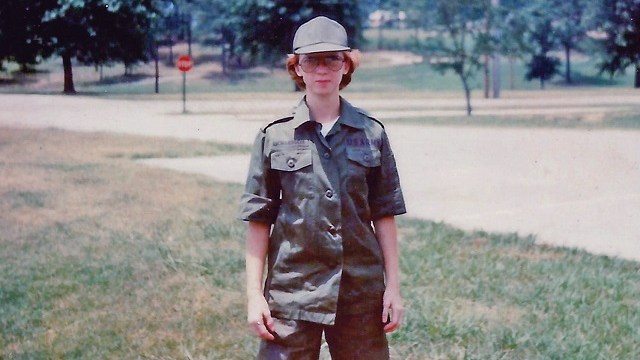
Many little girls dream of being a ballerina, a princess or perhaps a high-fashion model. Not Denise Richardson. At the tender age of 4, Richardson wanted to grow up and become a soldier. For a young girl whose family was immersed in a world “of all things Army,” her aspirations weren’t unusual. Her father and grandfather were U.S. Army veterans, and her brother was in the U.S. Marine Corps. “I was always a patriot,” said Richardson, a customer service representative in Alabama Power’s Phenix City Office. “My parents instilled it in me. Even as far back as a toddler, I wanted to be a soldier like my daddy. I am a firm believer it’s God’s calling to go into the service. “It’s a duty to serve, and it’s a privilege to serve,” said Richardson, who served 31 years in the Army National Guard and three years active U.S. Army. As a teen, Richardson was in ROTC (Reserve Officers’ Training Corps) until her 1976 graduation from Central High School in Phenix City. “I went straight from high school into the military,” Richardson said. “I graduated from high school on a Friday night and was on a bus on Sunday to start basic training.” Richardson spent 12 weeks at Fort McClellan in Anniston, where she took advanced intense training to work as a clerk for the Army Standard Installation and Division Personnel Reporting System. During Richardson’s active duty, she married and had her first child. With an infant, Richardson said that continuing in active duty would have been impossible: At her rank, she wouldn’t have been allowed to take her child overseas. So Richardson stayed in Alabama to embark on her next dream: earning a college diploma. “I was happy to serve in the Army, but I’d always wanted to graduate from college,” she said. “I was determined to go to college.” Richardson took advantage of the GI Bill. In pursuit of a business degree, she began attending Chattahoochee Valley Community College in Phenix City. She relished her first taste of higher learning, but the yearning to serve tugged at her heart. “I loved the military,” Richardson said. In 1983, Richardson signed on for the National Guard. She drilled one weekend monthly and for two weeks of the year. From clerk to heavy mechanic Richardson found that no clerk positions were open and, instead, took a job many women would find daunting: She became a wheeled vehicle mechanic. “I worked on Jeeps, Hummers and trucks,” Richardson said. “I did that pretty well.” After several years, she attended another military school to learn logistics, helping to track and manage the military supply chain. For a short time, she returned as a clerk. Later, Richardson went into heavy mechanics, becoming a tank turret repairman, which required three phases of training. “I enjoyed seeing how tanks and other large weapons systems were put together,” she said. Richardson had been promoted to staff sergeant, rank E-6 – just above sergeant and below sergeant first class – and was a noncommissioned officer. Promotion was becoming more difficult in the mechanical field. At 45, she decided to become a warrant officer. “I was accepted and attended warrant officer school at Fort Rucker. It was really rough,” Richardson said of the 30-day training. “But I made it.” As a warrant officer, she served in human resources for the National Guard. International tours of duty From 1990 to 1991, Richardson served in the Gulf War, the military operation to expel occupying Iraqi forces from Kuwait, which Iraq had invaded and annexed. “That was the first time I’d had shots fired over my head,” Richardson said. “It was the first time I was in the desert, my first experience in combat. “I was in areas where the enemy was shelling, in northern Saudi Arabia,” she said. “I wasn’t in the tanks – at that point, there were still some restrictions on women serving. But we were affected by rockets and not knowing who the enemy was. When the Iraqis retreated from Kuwait, some went into Saudi Arabia.” Richardson began working at Alabama Power in 1992. She continued to study at Faulkner University and theUniversity of Phoenix. From 2007 to 2008, Richardson served in Kuwait. After 20 years of college and the military, she earned her bachelor’s degree. “It took me a while, but I got it,” Richardson said, with a big smile. From 2009 to 2010, Richardson led the National Guard’s Yellow Ribbon Reintegration Program in Alabama, preparing soldiers who were being deployed and supporting family members while their soldier was away. “Deployment is a seven-day-a-week job,” she said. “It’s difficult going, and it’s difficult coming home. You’re on a high tempo; then you get home, and the bottom falls out. Click here to read more. Republished with permission from the Alabama NewsCenter.
Martha Roby pays tribute to veterans on House floor
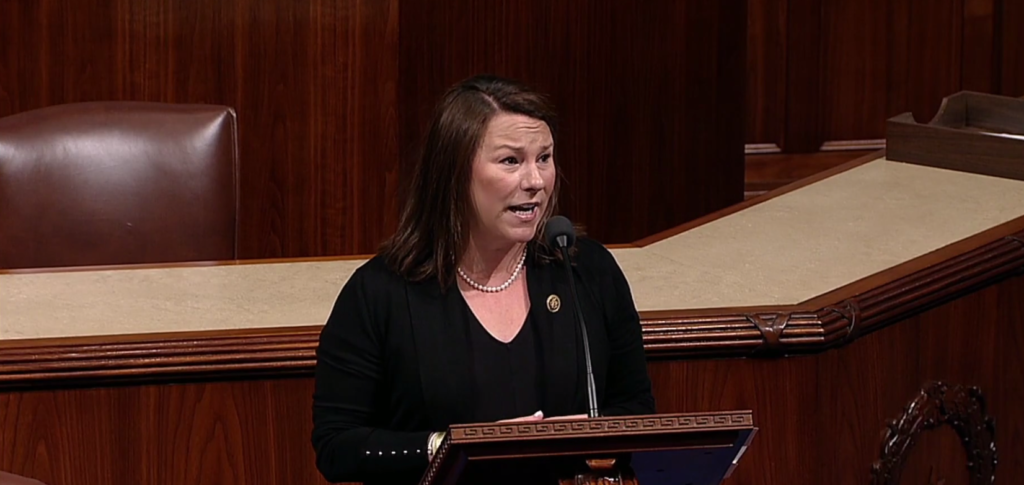
In a speech on the floor of the House of Representatives Tuesday, Alabama 2nd District U.S. Rep. Martha Roby honored America’s veterans and said advocating for those who have served this nation is one of the most rewarding parts of her job. “I take my responsibility to look out for veterans very seriously, whether through pushing for better policies, fighting to improve access to VA medical services, or going to bat for someone the bureaucracy has left behind,” Roby said. “I would like to extend my sincere gratitude to everyone who has served this country and to their families. Our country is great because of the men and women who were willing to sacrifice on our behalf.” Roby also shared the news that the Central Alabama Veterans Health Care System (CAVHCS), which serves all of Alabama’s Second Congressional District, has improved by another star rating. CAVHCS now ranks three out of five stars — a significant improvement from two years ago when the system ranked as one of the nation’s worst. Watch Roby’s tribute below: Read Roby full floor speech, as prepared, below: Thank you, M. Speaker. In the year 1918, on the 11th hour of the 11th day of the 11th month of the year, the armistice ending World War I was signed. Originally known as Armistice Day, Congress later passed and President Dwight Eisenhower signed a resolution officially designating November 11th as Veterans Day. Now, every year, Americans pause on this special day to recognize all those, young and old, who have served our country in uniform. While we should honor the service and sacrifice of our veterans every day, this holiday provides a unique opportunity for us to come together as a nation and pay tribute to the men and women who put their lives on the line for our freedom. This year I’ll be participating in my hometown of Montgomery’s Veterans Day event, and I highly encourage you and your family to attend the festivities in your area. I can promise you that you won’t regret it. For me, it’s not only an opportunity to express my gratitude to those who have served, but it’s also a chance for my children to meet veterans and to better understand the sacrifices that have been made for us. If you can’t attend an event in person, I hope you will take time to reach out to friends or relatives who have served to let them know they are appreciated. Mr. Speaker, this Veterans Day comes as services for veterans are improving – both on a national level and locally in Alabama’s Second Congressional District. I have been impressed by the leadership of Secretary of Veterans Affairs Dr. David Shulkin. He’s been making the long-troubled Department work better for those it serves. Closer to home for me, the Central Alabama Veterans Health Care System has again improved its service rating and now ranks three out of five stars. This is encouraging news, especially considering that just a few short years ago the Central Alabama VA was one of the nation’s worst. Our VA now has the steady leadership of Dr. Linda Boyle, and there’s no question that her guidance has made a difference in making this sustained progress. I’m eager to see it continue. We still have significant issues to address at our Central Alabama VA, which is why I will remain actively engaged in working to turn around the system. Mr. Speaker, it is my distinct honor to represent a district that is home to one of the nation’s highest concentrations of veterans and retired military personnel. One of the most rewarding parts of this job is being able to advocate for those who have served this nation in uniform. I take my responsibility to look out for veterans very seriously, whether through pushing for better policies, fighting to improve access to VA medical services, or going to bat on behalf of someone the bureaucracy has left behind. So Mr. Speaker, I would like to close by extending my sincere gratitude to everyone who has served this country and to their families. Our country is great because of the men and women who were willing to sacrifice on our behalf. Thank you. I yield back.
Bradley Byrne: Honoring our veterans
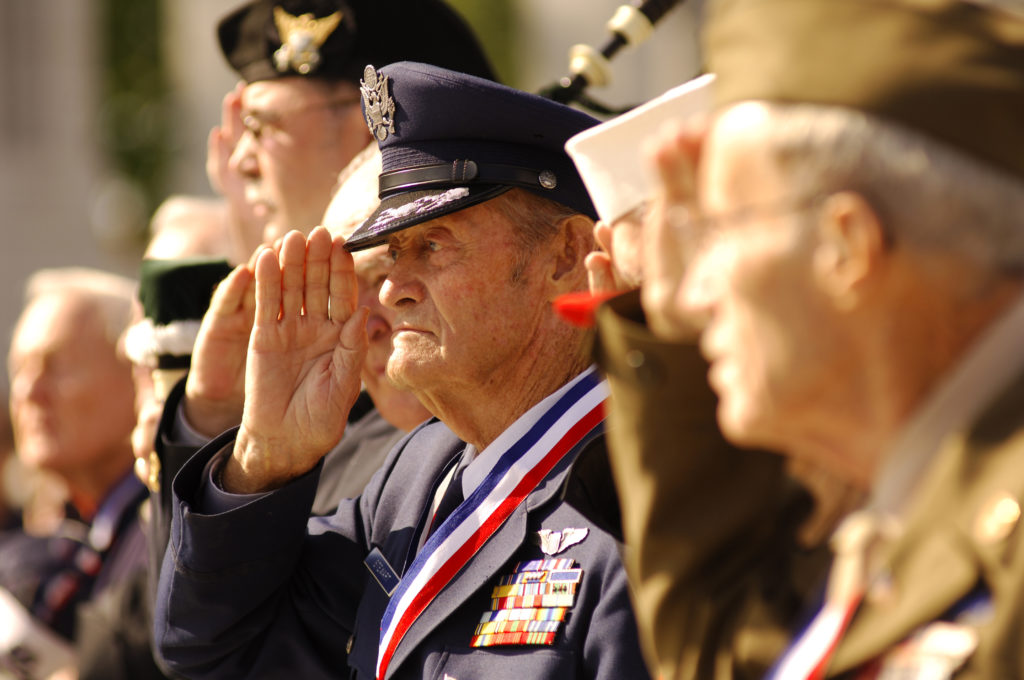
On November 11, we will celebrate Veterans Day and honor those who have served our nation. This is a day set aside to share our deep appreciation with all those, from the Battle of Yorktown to the War on Terror, who have fought to keep us safe and to protect the values we hold dear. There is really something remarkable about serving our country. It means that an individual is willing to give up their own life so that others may have the opportunity to live in the land of the free and the home of the brave. Veterans Day began in 1919 when President Woodrow Wilson created Armistice Day to commemorate the end of World War I. The name was officially changed from Armistice Day to Veterans Day in 1954 by President Dwight D. Eisenhower, who was a veteran himself. Veterans Day was briefly moved from November 11th to October in the seventies, but Congress passed a law in 1975 officially setting Veterans Day as November 11th. While Memorial Day is specifically for those who lost their lives while serving our country, Veterans Day is intended to honor all of our nation’s veterans, past and present. I am sure each of you has at least one veteran in your life. It may be a parent who served in Vietnam or a child currently serving in the Middle East. For some, it may be a co-worker, grandparent, or classmates. One thing they are for sure is a hero. On Veterans Day, I am always reminded of my brother, Dale. Dale had a lengthy career in the Alabama National Guard, where he rose to rank of Command Sergeant Major. During his military career, Dale served in the Airborne Rangers and Special Forces (20th Special Forces Group). Many times his missions were secret and even our family could not know all the details. Through his service, Dale earned many honors including the Bronze Star (two awards), the Meritorious Service Medal (five awards), the Army Commendation Medal (three awards), and the Global War on Terrorism Expedition Medal. Dale loved the camaraderie of the military, and he treasured so many friendship that he made through his service. Sadly, Dale passed away back in 2013 after a lengthy illness. I miss Dale every day, but I am always blown away by the wide range of people from all over who come up and tell me their stories about Dale. No stories are more powerful than those from people who served alongside Dale over the years. It is that fellowship that makes military service so special. Earlier this year, Secretary of Defense James Mattis was asked in a television interview what keeps him up at night. Secretary Mattis did not hesitate before answering, “Nothing. I keep other people awake at night.” That confidence is not derived from any special aircraft or any great piece of military equipment. Those items are important, but they are meaningless without a highly capable and trained military; without individuals willing to put country before self. That confidence is a testament to the men and women who make up the greatest fighting force in the world: the United States military. Today’s sailors, soldiers, airmen, and Marines are carrying on the legacy of the countless others who came before them. So, this Veterans Day, may we remember the courage, sacrifice, dedication, and unselfish nature of all those who have served our country. May we never allow their service and sacrifice to be in vein, and may we always honor the United States of America. • • • Bradley Byrne is a member of U.S. Congress representing Alabama’s 1st Congressional District.
Martha Roby: Honor veterans in your hometown
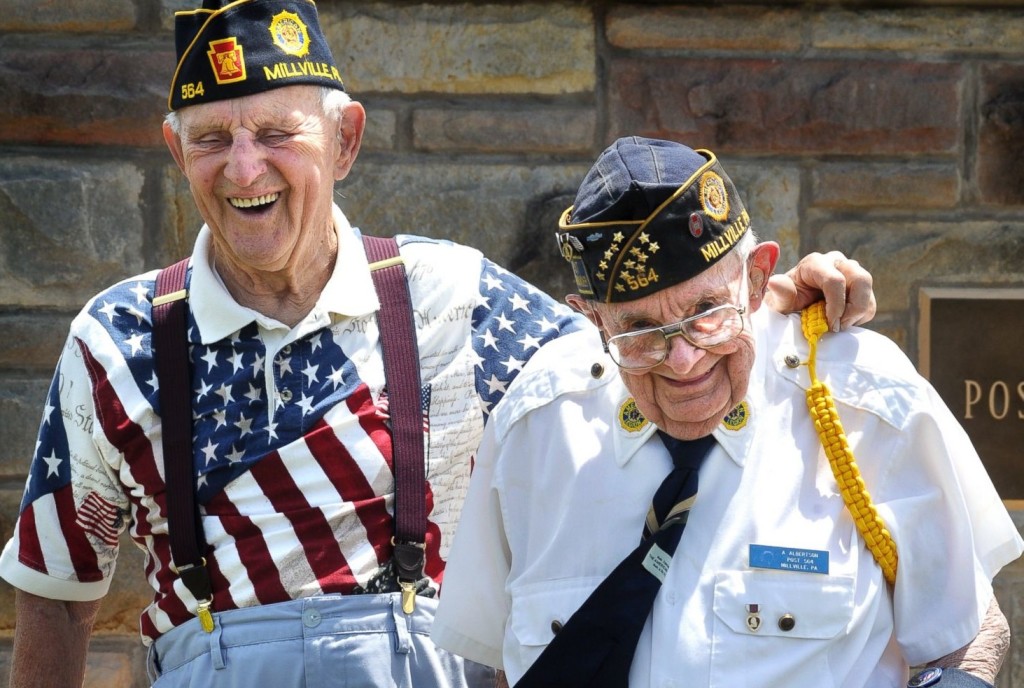
In 1918, on the 11th hour of the 11th day of the 11th month of the year, the armistice ending World War I was signed. Originally known as Armistice Day, Congress later passed and President Dwight Eisenhower signed a resolution officially designating November 11 as Veterans Day. Now, every year, Americans pause on this special day to recognize all those, young and old, who have served our country in uniform. While we should honor the service and sacrifice of our veterans every day, this holiday provides a unique opportunity for us to come together as a nation and pay tribute to the men and women who put their lives on the line for our freedom. I highly encourage you and your family to attend a Veterans Day ceremony in your area. Many towns throughout Central and South Alabama will be holding special observances, and I’ve had the privilege to attend several over the years. This year, I will be participating in Montgomery’s Veterans Day event at Riverwalk Stadium. For me, it’s not only an opportunity to express my gratitude to those who have served, it’s also a chance for my children to meet veterans and to better understand the sacrifices that have been made on our behalf. If you can’t attend an event in person, I hope you’ll take time to reach out to friends or relatives who have served to let them know they are appreciated. This Veterans Day comes as services for veterans are improving, both on a national and local level. I’ve been impressed by the leadership and ingenuity of Secretary of Veterans Affairs Dr. David Shulkin in making the long-troubled Department of Veterans Affairs work better for those it serves. Closer to home, the Central Alabama Veterans Health Care System (CAVHCS) has again improved its service rating and now ranks three out of five stars. That’s encouraging news, especially considering that just a few short years ago the Central Alabama VA was one of the nation’s worst. There’s no question that finally having the steady leadership of CAVHCS Director Dr. Linda Boyle has contributed to this sustained progress, and I’m eager to see it continue. We still have significant issues to address at CAVHCS, which is why I remain actively engaged in working to turn around this system. It is my distinct honor to represent a district that is home to one of the nation’s highest concentration of veterans and retired military personnel. One of the most rewarding parts of my job is being able to advocate on behalf of those who have served this nation in uniform. I take my responsibility to look out for veterans very seriously, whether it is through pushing for better policies, fighting to improve access to VA medical services, or going to bat on behalf of someone the bureaucracy has left behind. If you are a veteran, I would like to extend my sincere gratitude to you and to your family. This country is great because you and people like you were willing to sacrifice on our behalf. ••• Martha Roby represents Alabama’s Second Congressional District. She lives in Montgomery, Alabama with her husband Riley and their two children.
Terri Sewell to host Fourth Annual Veterans Resource Fair
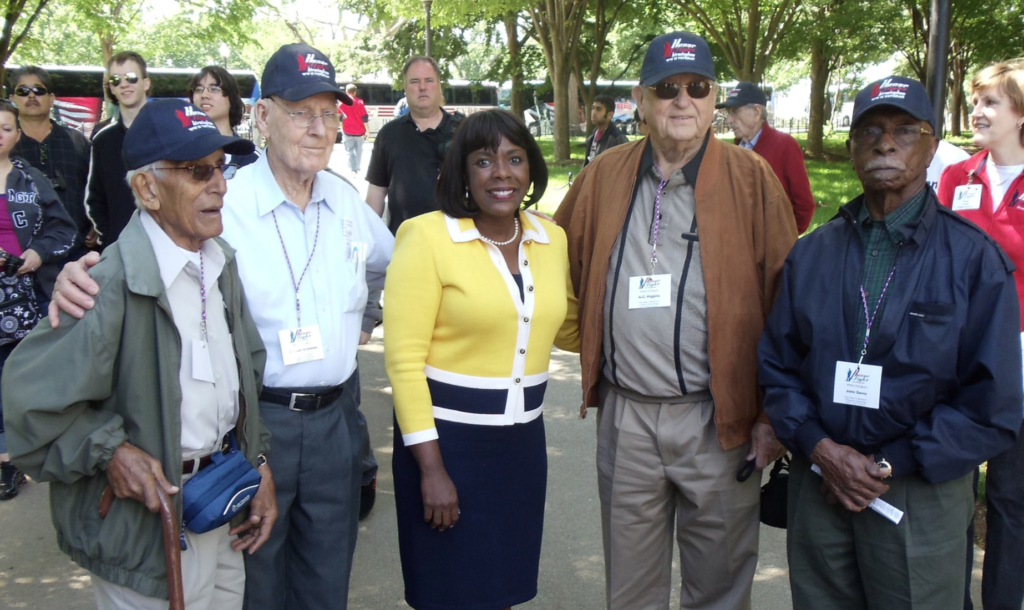
In support of those who served our nation, Alabama 7th District U.S. Rep. Terri Sewell will host her Fourth Annual Veterans Resource Fair on Thursday, Oct. 5, from 10:00 a.m. to 1:00 p.m. at the Birmingham VA Medical Center Annex. The free event aims to provide assistance with issues unique to veterans including VA benefits, transportation resources, health screenings, housing options, mental health services, caregiver support, women’s services, career services, and more. Over 25 resource groups and service officers will be onsite to help attendees. The event is free and open to the public. For those unable to attend, Sewell has published a Veterans Resource Guide to help the brave men and women of Alabama’s 7th Congressional District who have answered the call to serve in our armed forces as they transition back into their communities. The guide helps our veterans obtain the proper benefits and assistance they have earned through their service.
John McCain demands accounting from VA on money for private care
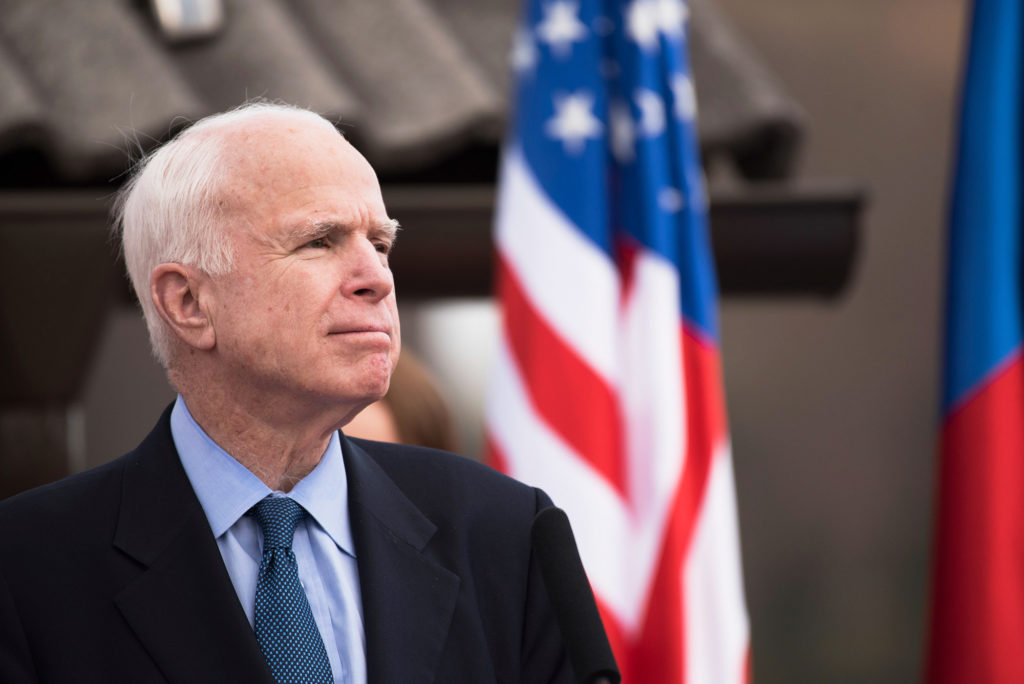
Sen. John McCain is demanding a full accounting from the Department of Veterans Affairs on the financial status of its private-sector health care program after the agency said it could face another budget shortfall as soon as December. The Associated Press reported this week that the VA had acknowledged its Veterans Choice program could run out of money by year’s end despite receiving $2.1 billion in emergency funding just last month. Another shortfall could force the VA to limit referrals to outside doctors, causing delays in medical care for hundreds of thousands of veterans. In a letter to VA Secretary David Shulkin, McCain, who chairs the Senate Armed Services Committee, said he wants to know specifically when the VA expects Choice to run out of money. McCain cites AP’s report, which included a statement from VA that Choice funds could be depleted as early as December or as late as March. The letter, sent late Wednesday, calls for a VA response by the end of the week. The Arizona Republican noted that Congress was led astray earlier this year after VA provided false assurances that Choice funds would last until early 2018. After Shulkin admitted to a budget shortfall in June, McCain joined other senators to express concern to VA about possible financial mismanagement. Congress ultimately approved $2.1 billion in emergency spending for Choice that was intended to last until February. “We said at the time that it was essential, given the growing demand for care under the Choice program, that the VA immediately correct the failures that created such a serious shortfall,” McCain wrote. “It appears as if you have not done so.” In its statement earlier this week to AP, the VA said it hoped to move quickly on a proposed long-term legislative fix that would give veterans even wider access to private doctors. The proposal, under review by the White House budget office, would seek money to keep Choice running for much of next year as VA implements wider changes. Earlier this year, the VA began limiting referrals to outside doctors as money started running low. The Choice program was passed by Congress in 2014 in response to a wait-time scandal at the Phoenix VA medical center that spread nationwide. Some veterans died while waiting months for appointments as VA employees manipulated records to hide delays. The controversy spurred Congress to establish Choice as a pilot program to relieve pressure at VA hospitals. Republished with permission from the Associated Press.
Groups seek to halt Donald Trump transgender military policy change
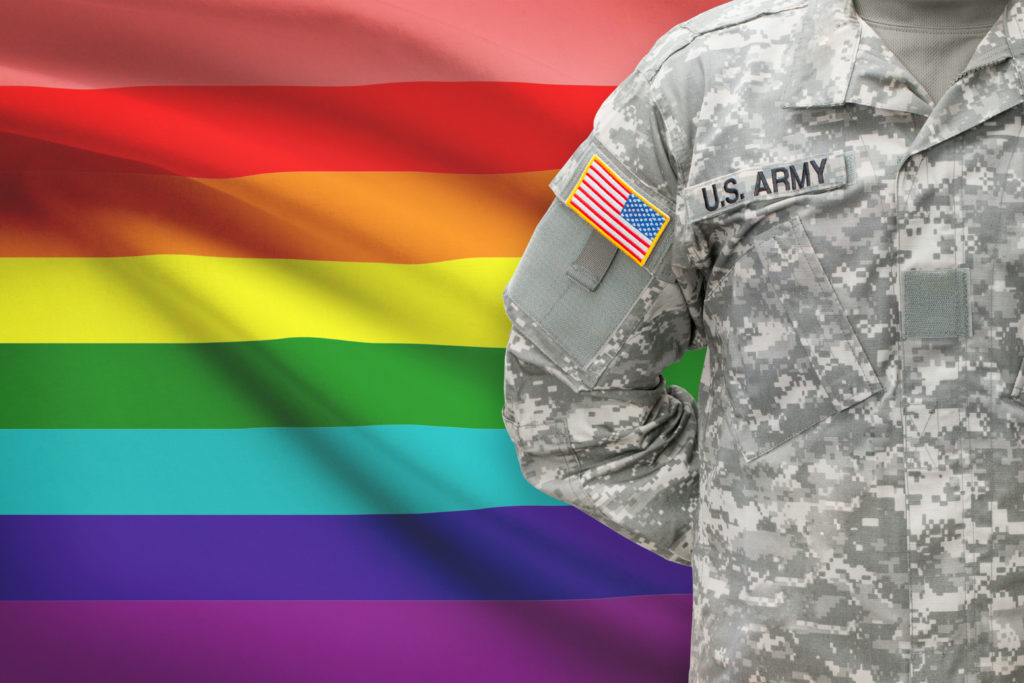
Two LGBT-rights organizations asked a federal judge in Washington on Thursday to bar President Donald Trump from changing the government’s policy on military service by transgender people. The groups, backed by several former military leaders, filed a motion asking the judge to grant a preliminary injunction to keep Trump from reversing course on a 2016 policy change that allowed transgender individuals to serve openly. Trump slammed that change in a memo last Friday and announced he was directing a return to the former policy under which service members could be discharged for being transgender. Trump directed the Pentagon to extend indefinitely a ban on transgender individuals joining the military, and he gave Defense Secretary Jim Mattis six months to come up with a policy on “how to address” those who are currently serving, leaving the door open to permitting their continued service. Until Mattis has made that determination, “no action may be taken against” the currently serving transgender individuals. Trump also directed Mattis to halt the use of federal funds to pay for sexual reassignment surgeries and medications, except in cases where it is deemed necessary to protect the health of an individual who has already begun the transition. Lawsuits challenging the changes have been filed in courts in Washington, Seattle and Baltimore. The Washington lawsuit was filed earlier this month after Trump wrote on Twitter in July that the federal government “will not accept or allow” transgender individuals to serve “in any capacity” in the military, statements that preceded his memo last Friday. The groups behind the lawsuit, GLBTQ Legal Advocates & Defenders (GLAD) and the National Center for Lesbian Rights, say the memo’s changes would violate service members’ constitutional rights to equal protection and due process. As part of the preliminary injunction motion filed Thursday, former military leaders said in court papers that changing the open service policy would be harmful. The former officials – including former Navy Secretary Ray Mabus, former Air Force Secretary Deborah Lee James and former Army Secretary Eric Fanning – served during the Obama administration, which in June 2016 changed longstanding policy to allow troops to serve openly as transgender individuals. Republished with permission from the Associated Press.
New Birmingham organization encourages hiring veterans

Up to 360,000 men and women leave the military annually and a new Birmingham-based initiative is hoping to make their transition a little bit easier for those looking to stay in the workforce. Founded in February 2017, VETBHAM, seeks to foster collaboration among Birmingham area businesses to support veteran-orientated initiatives. The group, which officially launched last week with the naming of Danny Noles, the Managing Partner at Penn Mutual Alabama, as President, is looking to strengthen the community of Birmingham through empowering veterans and recognizing their individual and collective skills. Modeled after a simliar initiative in Atlanta, VETLANTA, VETBHAM looks for community support by way of ideas, action and influence rather than monetary donations.
America’s 16 years in Afghanistan: From triumph to stalemate
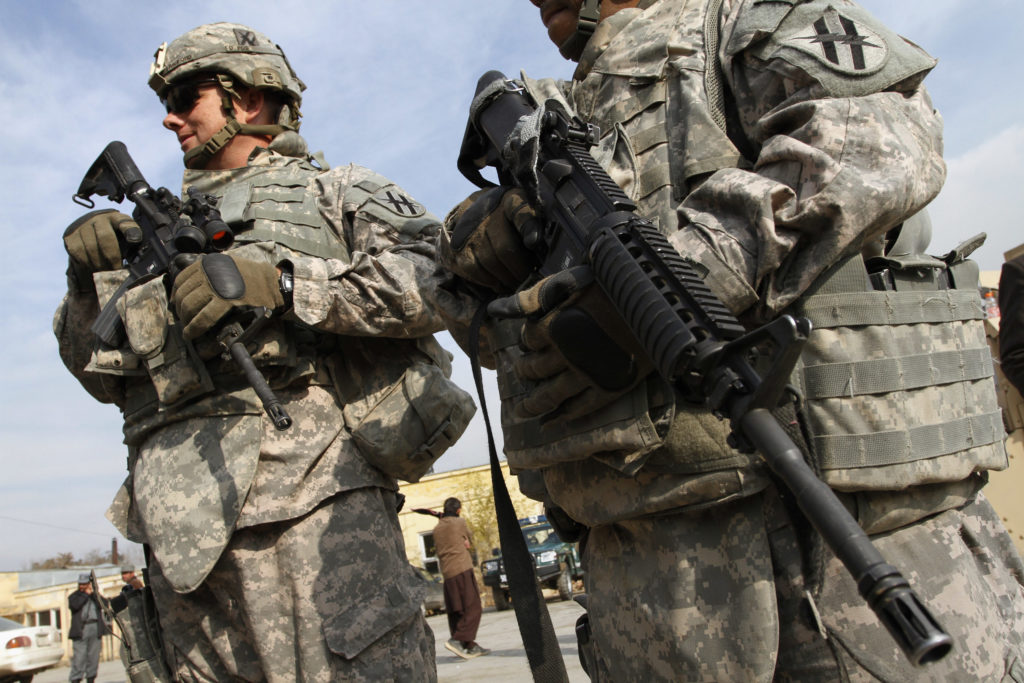
Sixteen years of U.S. warfare in Afghanistan have left the insurgents as strong as ever and the nation’s future precarious. Facing a quagmire, President Donald Trump on Monday outlined his strategy for “victory” in a country that has historically snared great powers and defied easy solutions. America’s longest-running war began well as U.S.-led forces quickly toppled the Taliban government and disrupted al-Qaida leaders who plotted the Sept. 11, 2001, attacks from Afghan soil. But the fighting never ended. In recent years, security has gradually worsened as Taliban insurgents, enjoying sanctuary in Pakistan, have gained a foothold across the country. Afghanistan’s rampant heroin trade, official corruption and infighting among the nation’s elite have only compounded problems. Trump is the third U.S. president to grapple with the Afghan challenge. A look at the phases of the U.S. involvement to date: — REGIME CHANGE Less than a month after the 9/11 attacks, a massive U.S. air campaign targets al-Qaida fighters and Taliban troops, training camps and air defenses. Anti-Taliban forces of the Northern Alliance enter Kabul as the Taliban flee. By December 2001, Afghan groups agree on a deal in Bonn, Germany, for an interim government. With Afghanistan liberated from Taliban control, the U.S. military force grows to 2,500 as troops scour the mountainous Tora Bora region looking for al-Qaida leader Osama bin Laden. He eludes capture. Although President George W. Bush remains leery of supporting nation-building efforts in Afghanistan, the U.S. expands its counterterrorism operations. By the end of 2002, there are 9,700 U.S. troops in the country. — DEMOCRACY AND DISTRACTION In November 2004, Hamid Karzai, who had served two years as interim leader, is the clear winner in Afghanistan’s first direct election for president. The Bush administration hails the vote as a key step in the nation’s transformation. Millions of girls return to school after being barred under the Taliban. As the country opens up, Western aid helps the economy grow, at least in urban areas. But the Taliban, enjoying sanctuary in Pakistan, show signs of re-emergence, launching sporadic attacks on government forces in eastern Afghanistan. Although Karzai is an ethnic Pashtun, which comprise the bulk of Taliban recruits, his government alienates what is Afghanistan’s main ethnic group. Karzai’s administration is dominated by former commanders of the Northern Alliance. U.S. troop numbers swell to 20,000, but Washington’s attention increasingly turns to Iraq. The U.S. invades in March 2003, toppling Iraqi dictator Saddam Hussein. It struggles with the aftermath. Soon Iraq is gripped by an explosion of sectarian violence that preoccupies Bush until he leaves office. — MORE WESTERN TROOPS, MORE VIOLENCE In 2006, NATO assumes responsibility for security across the whole of Afghanistan, pumping troops into Taliban heartlands in the south of the country. The U.S. ups its forces in the country to 30,000. Britain, Canada and others boost their contributions. But the violence and lawlessness worsens. Production of opium, the raw material of heroin, soars to a record high, funding the insurgency and fueling official corruption. Tensions grow between Afghanistan and Pakistan over cross-border Taliban attacks. In the fall of 2008, Joint Chiefs of Staff chairman Adm. Mike Mullen concedes, “I’m not sure we’re winning.” — SURGE President Barack Obama, vowing to refocus U.S. efforts in Afghanistan, enters office in 2009 endorsing shifts to a counterinsurgency strategy designed to protect Afghan civilians rather than hunt down Taliban. He quickly sends in 21,000 more forces. After a prolonged policy review, Obama orders an additional surge, bringing troop levels to a high of 100,000 by August 2010. He says the U.S. will begin withdrawing forces by 2011. Critics say the drawdown date diminishes the incentive for the Taliban to negotiate for peace. Bin Laden is killed in a U.S. special operations raid in Pakistan in March 2011. Obama then presses ahead with plans to hand over security responsibilities to Afghanistan by 2014. By the end of that year, NATO ends its combat mission in the country. U.S. relations with Karzai, however, deteriorate. A contested election to replace Karzai introduces a more pro-U.S. leader in Ashraf Ghani, but his government is bitterly divided. — NO WITHDRAWAL With violence reaching post-2001 highs and Afghan security forces taking heavy casualties, Obama backtracks on plans to virtually withdraw all U.S. forces by the end of 2016. He leaves office with 8,400 troops still in the country. The U.S. kills new Taliban leader Mullah Mansour in a drone attack in Pakistan in May 2016, derailing peace talks. But on the battlefield, the Taliban are in the ascendant and threaten provincial capitals in both the north and south. The Islamic State group gains a foothold in eastern Afghanistan. — ENTER TRUMP Trump says little about Afghanistan during his first seven months in office, while the military grows antsy. The Pentagon proposes sending in nearly 4,000 more U.S. troops to increase training of Afghan forces and counterterrorism operations, but the administration is divided on strategy. Nearly everyone considers the fight a stalemate, and some in Trump’s administration even propose withdrawing or handing over the entire American effort to private security contractors. Among Afghans, anti-Western sentiment grows over deteriorating security, even in the capital, Kabul. The economy also suffers, partly as a result of a drawdown in foreign forces. As Trump is poised to announce his plan, Afghanistan’s government controls only about half of the country. After months of debate, Trump finally unveils his strategy in a prime-time television address. He says the U.S. will win “in the end,” defeating al-Qaida and IS fighters, and ensuring the government doesn’t fall to the Taliban. He refuses to provide troop increase numbers or timelines, saying military assistance would be determined by results and the cooperation of Afghanistan’s beleaguered government. Republished with permission of The Associated Press.


